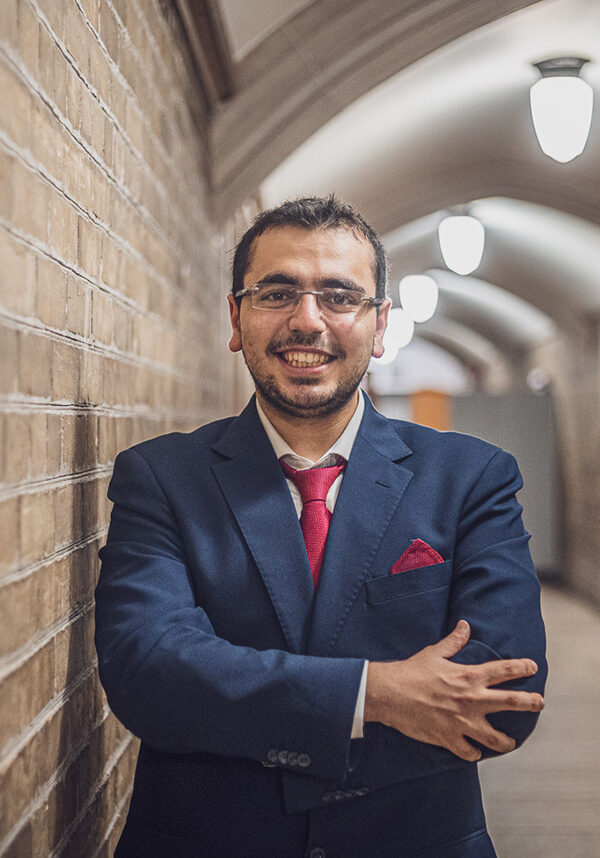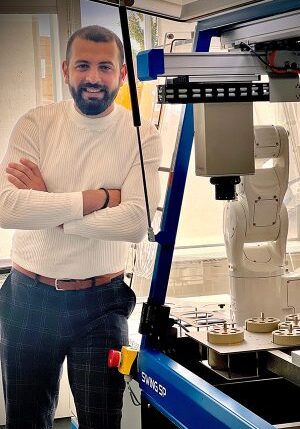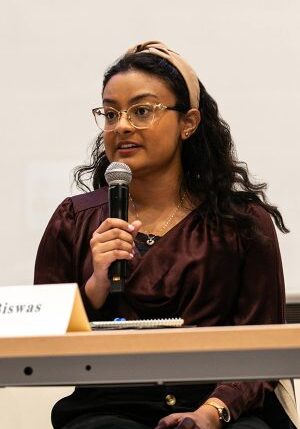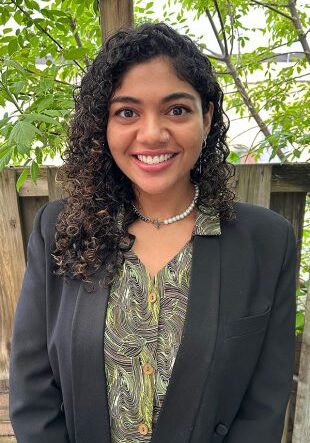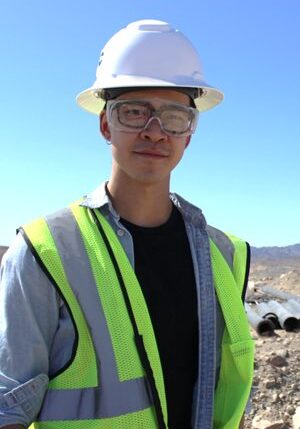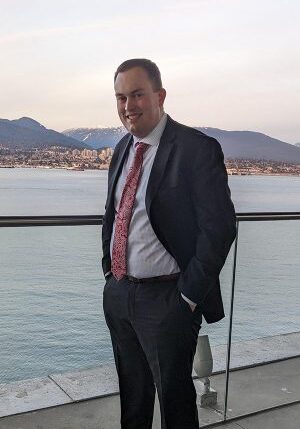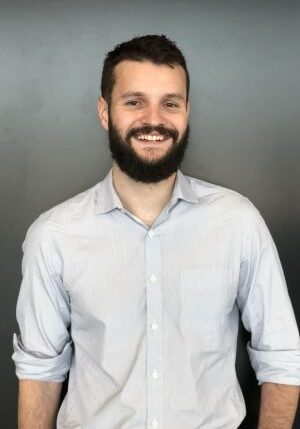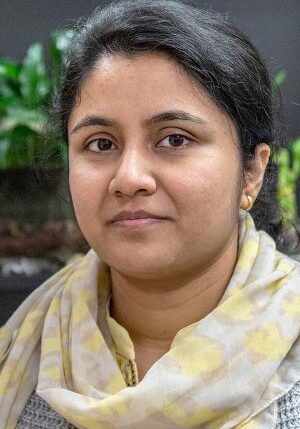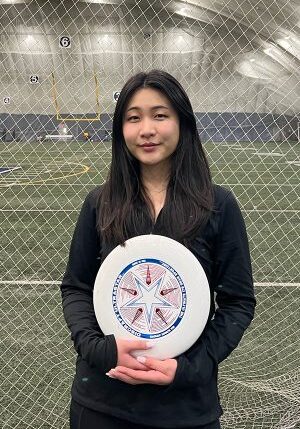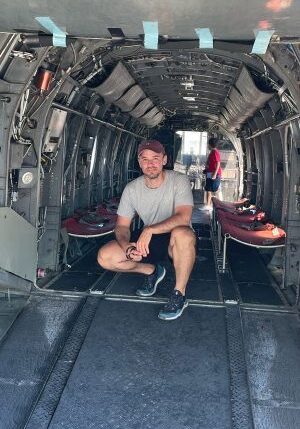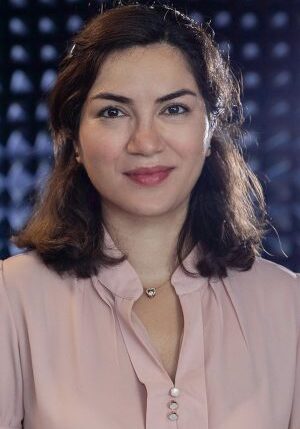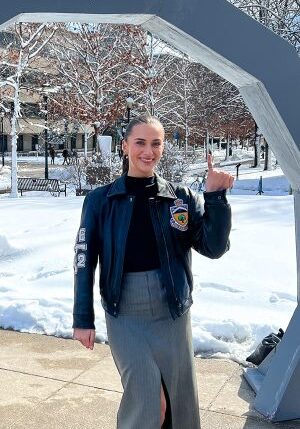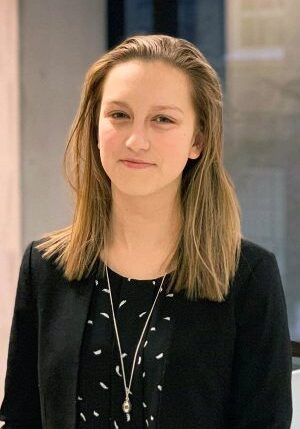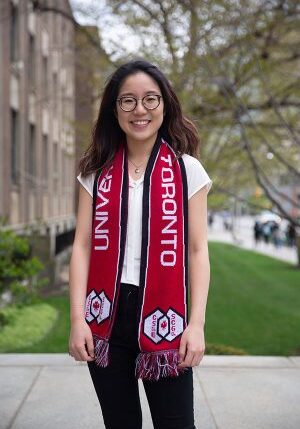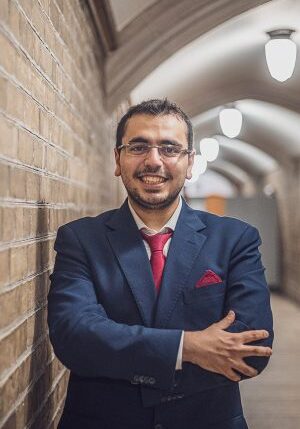With U of T Engineering's convocation ceremonies on June 20, 2023, our students mark the end of one journey and the beginning of another.
Story by Safa Jinje & Tyler Irving
Having enriched the U of T Engineering community as undergraduate and graduate students, they will join our vibrant, global network of Skule™ alumni, where they will continue to address pressing challenges around the world and inspire the next generation.
This year’s 15 Grads to Watch — selected by their home departments and institutes — embody the spirit of U of T Engineering. Their stories illustrate the creativity, innovation and global impact that define our community. Watch their next steps!
MEET
OUR
GRADS
ACCELERATING MATERIALS DISCOVERY
Jehad Abed (MSE PhD 2T3)
Abed sees his PhD journey as a hike, in which he used his technical knowledge to navigate complex terrain and various obstacles, while being careful to watch his step.
“I have also come to learn the importance of lifting my gaze up regularly to take in the panoramic view and appreciate the bigger picture of the journey,” he says.
This perspective has empowered Abed to stay inspired and see the interplay between different components of his research. His thesis project enables green hydrogen to be efficiently produced from renewable electricity, while also overcoming the challenge posed by a shortage of iridium — a precious metal used heavily in commercial electrolyzers.
“I used artificial intelligence, including graph convolution neural networks and quantum-inspired optimizers, to develop accurate models and accelerate the discovery of novel catalysts with improved performance,” he says.
During his time at U of T, Abed was a Vanier Scholar and the recipient of the Mitacs Accelerate Award. He was also a member of CERT, the U of T team that was a finalist in the Carbon XPRIZE, and he was named Emerging Hydrogen Leader by the Canadian Hydrogen Convention 2023 for his work on green hydrogen at U of T.
Abed managed and led collaborations as the program director of The Alliance for AI-Accelerated Materials Discovery, working with industry and academic collaborators such as Meta, Fujitsu, Massachusetts Institute of Technology and Columbia University, among many others.
After graduation, Abed will be joining Meta’s Artificial Intelligence department as a postdoctoral researcher, working on accelerating material discovery for energy applications. He will lead the team’s experimental effort to use lab automation, data-driven experimental design and artificial intelligence to rapidly screen for novel materials.
“I am deeply grateful for the unwavering support that I have received from my supervisor, Professor Edward H. Sargent (ECE). His pivotal role in shaping my research interests and challenging me to push past my limits has been a defining factor in my success and development as a scientist.
Furthermore, I would like to express my heartfelt thanks to the staff and faculty members of the Materials Science & Engineering department for fostering my growth and enabling me to flourish. They have gone above and beyond to support me in my endeavors, particularly when I was applying for the Vanier Scholarship, and when I was navigating the challenges posed by the COVID-19 pandemic."
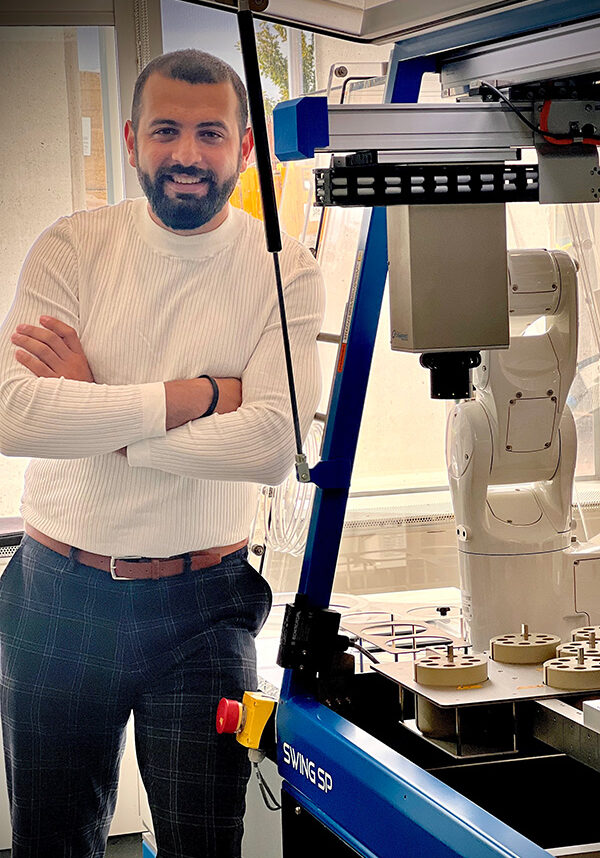
LEADING WITH INSPIRATION
Maeesha Biswas (IndE 2T2 + PEY)
“U of T has empowered me to learn more about how the world works and my place in it,” says Biswas.
During her time as an undergraduate industrial engineering student, Biswas’ academic interests were focused on health-care systems, human factors, technology and design geared at understanding people better.
She also devoted more than 2,000 hours to various activities and organizations, including planning the Undergraduate Engineering Research Day (UnERD) in 2020 as co-chair; and co-founding and co-hosting 1% Inspiration, a podcast that features stories and wisdom from the U of T Engineering community, including faculty, alumni and current students.
“After UnERD 2020 — which was held online due to the COVID-19 lockdown — we observed some students miss out on career development and networking opportunities due to a lack of on-campus interactions,” she says. “We created the podcast in response and since it launched, it has received over 1,100 listens over 22 episodes.”
As an extension of the podcast, Biswas collaborated with Skule™ to launch student initiatives, such as the “Dear Frosh” campaign that features letters from U of T Engineering students and alumni to their first-year selves.
After graduation, Biswas is looking forward to working on a startup with some of her fellow graduates to build generative artificial intelligence tools for media creators.
“I began learning to be a software developer during my PEY Co-op at PocketHealth — a company which helps patients share their diagnostic imaging records and own their medical information,” she says. “This experience gave me an appreciation for the huge scale of impact software can have on people’s lives.
“I want to continue to enrich human lives and experiences through software technology, and I believe my most important life’s work will be here.”
“Thank you to: Cori Hanson, for her consistent support and sponsorship from my first year of university as my academic advisor; Jennifer Wang (ChemE 2T1 + PEY) for her unending excellence and kindness in co-creating the 1% Inspiration podcast; my capstone team — Cecilia Rozario (IndE 2T2 + PEY), Peter Won (CompE 2T2 + PEY), Robert Ciborowski (Computer Science) — for helping me become a better future engineer; and Mom, for helping me dream big and stay resilient, and Dad, for instilling my curiosity."
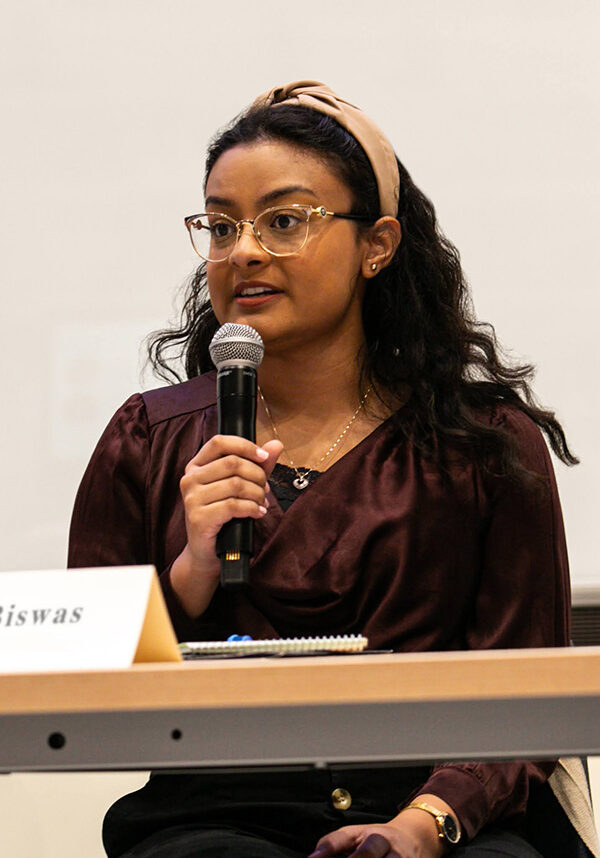
FOSTERING CLEAN ENERGY
Aleisha Reese Cerny (MIE MASc 2T3)
Cerny says that pursuing research at U of T Engineering has empowered her to discover new ways of thinking and approaching problems.
For her thesis, she worked on developing conductive polymer composite materials for humidity sensors that can be used in the energy sector, as well as new materials for a component of hydrogen fuel cells called bipolar plates.
“By improving upon certain components of fuel cells, we can accelerate the mainstream adoption of this technology for a carbon-neutral future,” she says.
One of Cerny’s most rewarding experiences of the past two years was working as a teaching assistant.
“Teaching students, answering their questions and being a pillar for advice has been invaluable,” she says. “These students give me hope for the future.”
After graduation, Cerny will be working on a new startup that she co-founded with support from The Entrepreneurship Hatchery called Sustain Hydro. The team also includes Professor Olivera Kesler (MIE), who specializes in materials science, electrochemistry and solid oxide fuel cells (SOFCs); as well as two other colleagues that she met in Kesler’s lab.
Sustain Hydro’s initial target market will be freight and heavy-duty trucks, as they contribute to over 10% of Canada’s greenhouse gas emissions.
“Our goal is to develop our own SOFCs for use in energy and transportation applications,” she says. “We have an exciting opportunity to really revolutionize traditional diesel engines, which can effectively lower environmental pollution and improve public health in our country.”
Beyond this endeavour, Cerny hopes to continue to incorporate her materials and engineering background into many avenues for climate justice.
“Thank you to Professor Hani E. Naguib (MIE, MSE) and all my colleagues and friends in the TSMART Lab. Professor Naguib has supported and encouraged my research endeavours on clean energy topics since the start. Any big idea I had was met with enthusiasm, guidance and support. He has built and fostered a lab with brilliant scientists who are willing to help and lift each other up when needed. Starting this degree in the pandemic was challenging, but the support and connection from other students and colleagues helped immensely."
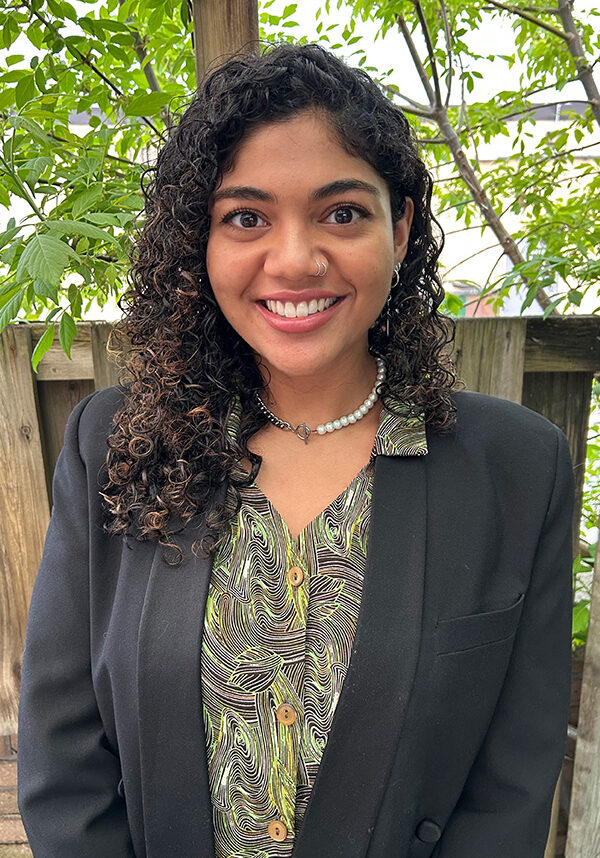
BREAKING NEW GROUND
Patrick Diep (ChemE PhD 2T3)
When Diep was a child, he used to keep a drawer full of rocks he dug up at the park. This early interest in the earth persisted into his PhD studies, where his thesis explored the ways biology could be engineered to recover metals from wastewater, both sustainably and economically.
“Many mines use hydrometallurgy to extract metals from pulverized rocks, and this process creates the hazardous materials we see in tailing ponds,” he says.
“The used process waters that sit atop these ponds contain dissolved metals too dilute to economically purify and too concentrated to release directly into the environment.”
During his PhD studies, Diep founded and led the Canadian Synthetic Biology Education Research Group, a non-profit dedicated to conducting research to find best practices for teaching synthetic biology to virtual classrooms comprised of undergraduate and high school students from all backgrounds.
Diep also co-founded a startup called Lyrata Inc., along with fellow U of T student Adnan Sharif (Cellular and Molecular Biology, Biochemistry) and the support of The Entrepreneurship Hatchery. The company develops engineered soil for hydroponics.
“A PhD, non-profit and startup at the same time is not something I would recommend anyone do for a long period, but the lessons I learned are innumerable,” he says.
Diep has moved on from this work, and since January he has been living in California’s Bay Area, where he works as a postdoctoral scientist at the Lawrence Livermore National Laboratory.
“I am designing variants of the ground-breaking protein called lanmodulin that has the ability to separate light and heavy rare Earth elements from every major transition metal you find in rocks,” he says.
“With access to more automation and fabrication technologies, and a new skillset for immobilizing proteins to solid matrices, I am very excited for what the future version of me is going to bring.”
“Thank you to BioZone for letting me freely explore my ideas and The Entrepreneurship Hatchery for teaching me everything about the word value."
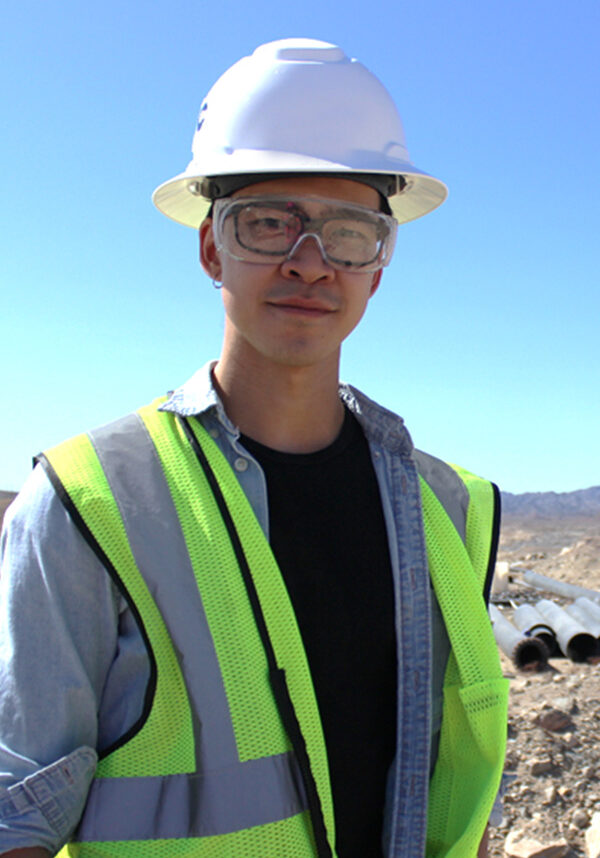
MODERNIZING MINING TECHNOLOGY
Alec Gilvesy (MinE 2T2 + PEY)
Gilvesy says his time at U of T Engineering has been a great balance between fun extracurricular activities, academic challenges and hands-on work.
“I have been fortunate to take part in a lot of different groups over my time at the University,” he says.
He was a member of the Min Club, and as president this past year, the team was recognized as Discipline Club of the Year by EngSoc. He was also part of the U of T Canadian Mining Games Team, the Skule ™ Nite Band and the Blue & Gold Committee, and he held the role of vice-archivist for the Skule™ Archives.
As an undergraduate in the Lassonde Mineral Engineering program, he says he had the invaluable experience of getting out into the field during courses such as MIN 225: Introduction to the Resource Industries, CME 358: Survey CAMP and MIN 400: Geology Field Camp.
“All my courses have featured knowledge sharing of state-of-the-art technologies impacting the field of mining, which were delivered by some of the top leaders in the field,” he says.
“It has been exciting to see some of these technologies implemented during my PEY Co-op at Agnico Eagle’s Macassa mine, and I hope to continue to see these innovations shape the field over my career.”
After graduation, Gilvesy will be returning to the Macassa mine in Kirkland Lake, Ont., to work as an engineer-in-training.
“The Macassa mine and Agnico Eagle align with a lot of my personal values and interests,” he says. “The company puts a big emphasis on mining sustainably and supporting the local community, which I believe are crucial for mining companies as we move forward.
“Macassa has been in operation more or less continuously since 1933, so there is a lot of history there that I hope to continue to learn from and apply and adapt it to more modern technology and techniques.”
“I’d really like to thank my team at MinClub for their hard work over the past year: Shaan Hudani (MinE 2T2 + PEY), my VP Social; Peter Anderson (MinE 2T2 + PEY), my VP Finance; Raymond Bhushan, my VP Academic; and Komal Mann (MinE 2T2 + PEY), my VP Industry, and right hand in everything with MinClub this year. You’ve all really made an impact on the students in the Lassonde Mineral Engineering program, and I can’t wait to see what you all do next!"
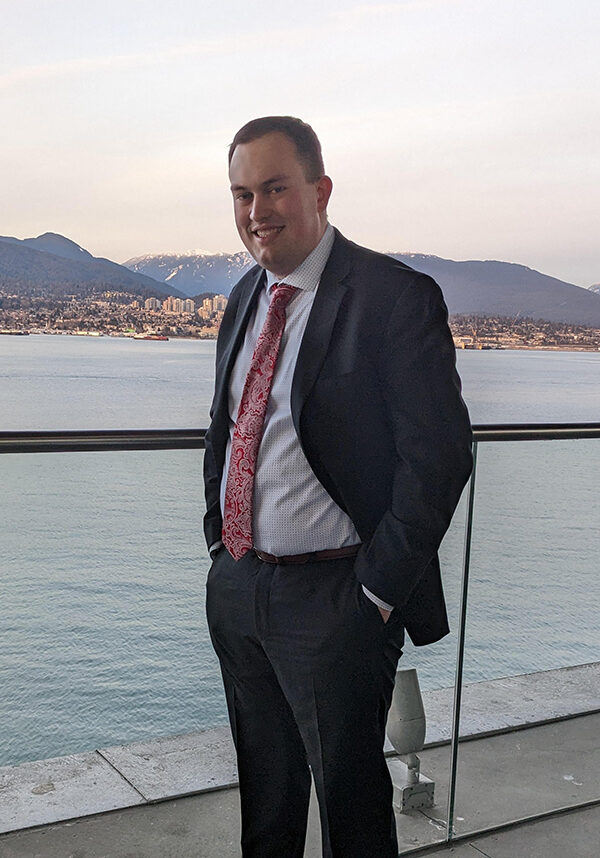
ADVANCING ROBOTIC SURGERY
Alex Gordon (BME PhD 2T3)
Gordon’s thesis focused on developing new robotic-assisted instrumentation that can improve the precision and control with which surgeons perform operations. Specifically, he designed a system for treating the condition of craniosynostosis, where the bones in an infant’s skull fuse together prematurely.
“The surgeon essentially needs to cut the skull in a number of places to allow for the brain to expand as it grows,” says Gordon.
“Our initial testing shows that there are advantages to performing the surgery using a robot, as compared with a manual approach. More developing and testing is required, and the research continues at The Hospital for Sick Children (SickKids), but we hope it will lead to easier operations and better outcomes.”
Gordon has already parlayed his expertise into a business venture. Together with some former lab mates, he co-founded Revolve Surgical, a company that is developing a robotic-assisted system for surgery in the abdomen.
“Robotic surgery allows surgeons to perform complex minimally invasive operations much more easily, and outcomes are often better,” says Gordon.
“But current systems cost millions of dollars and access is extremely limited in most countries, including Canada. We’d like to change that. We believe everyone — patients and surgeons alike — should have access to the latest and best surgical technology.”
Revolve Surgical has been through two startup accelerators: U of T’s Creative Destruction Lab, and Silicon Valley’s Y Combinator. Gordon says that both helped to focus the company’s objectives and get connected with expert mentors, as well as providing avenues to raise funds.
Following graduation, he will continue to serve as Revolve Surgical’s CEO. He says that one of the main things he learned at U of T is how to recognize and be open to unique opportunities.
“The University has such a deep and diverse ecosystem of research labs that give students a close look at industries and areas of research that would otherwise be hard to break into, such as surgical robotics,” he says. “It’s important to leverage that.”
“The lab where I performed my research, the Center for Image Guided Innovation and Therapeutic Intervention (CIGITI), provides amazing opportunities to work closely with clinicians in the hospital on real-world problems. Thanks to all my lab mates at CIGITI — they really made the experience!"
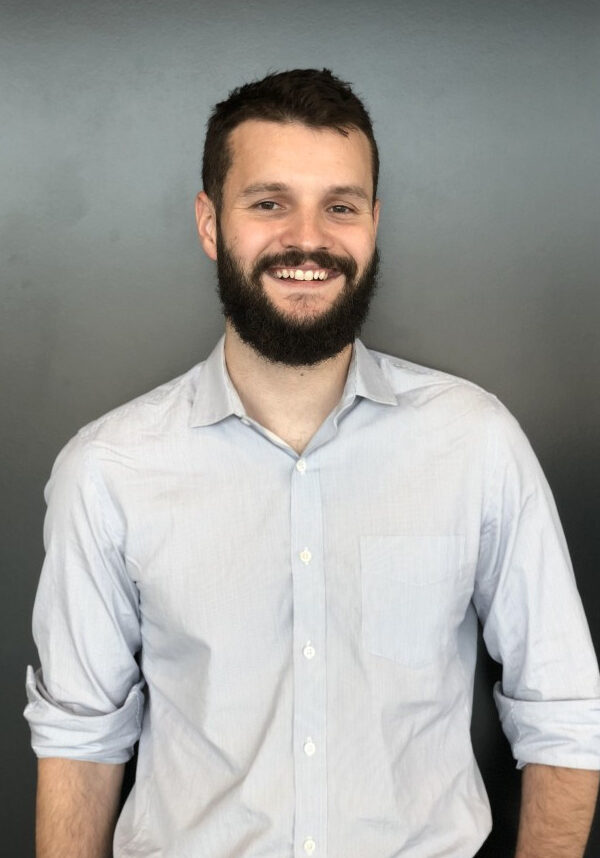
BLAZING A NEW PATH
Mohamed Hirole (CompE 2T2 + PEY)
“U of T Engineering is limitless,” says Hirole. “There are so many opportunities to take advantage of — extracurricular, professional or just for fun.
“Over these last couple years, I tried everything and stuck with the hobbies I liked the most.”
Hirole joined the University of Toronto Aerospace Team in its Space Systems division, building a cube satellite that helped him gain critical design skills and strengthened his ability to work on teams. He also joined the National Society of Black Engineers U of T Student Chapter, and was part of the team that founded NSBEHacks, the first Black student-run hackathon in the GTA. The following year, he became president of NSBE-U of T.
“In this position, I wanted to give a platform to other minority students by planning a bunch of on-campus events with companies such as Google, Shopify and Microsoft,” he says. “I also wanted to share my own journey to inspire others.”
Last summer, Hirole completed a PEY Co-op internship at Twitch in San Francisco, and he plans to return there full time upon graduation. He says that his time at U of T taught him how to be resourceful and self-sufficient.
“Throughout my studies there were numerous times where I didn't know what to do or how do it,” he says. “I cultivated the skill of learning to skim extremely technical documents for the info I was looking for. I think my studies have given me an ability to try to figure things out for myself, but I also learned to reach out to others for help when I need it.”
“I’d like to thank my parents, ECE department and faculty, NSBE and UTAT communities, and all the supportive friends I’ve met along this journey. Special shoutout to Dylan Vogel (EngSci 2T1) and Ali Haydaroglu (EngSci 1T9 + PEY) from UTAT Space Systems division. They created a very fun and welcoming atmosphere. There were moments where I doubted myself, but everyone’s support helped me push forward. Sometimes self-doubt is an invitation to be greater."
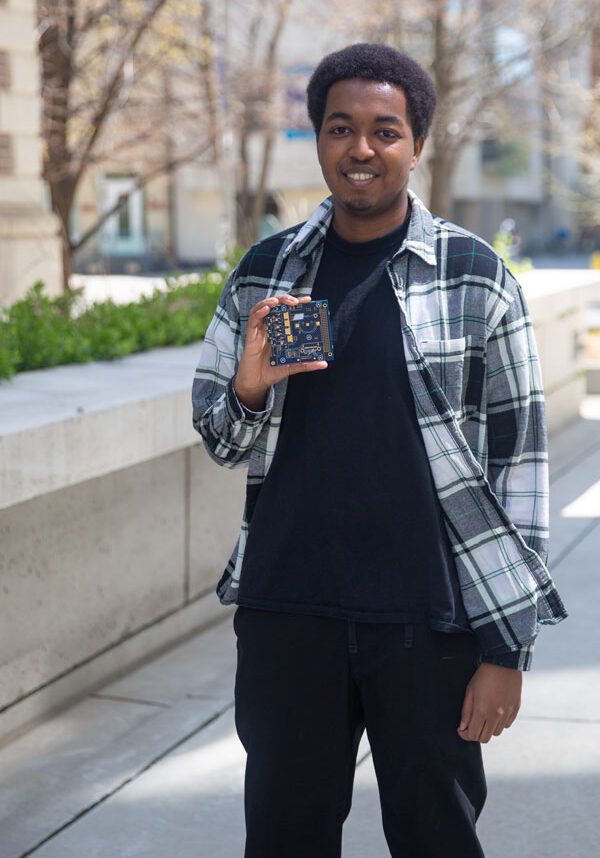
INNOVATING DATA SCIENCE
Sanjana Hossain (CivMin PhD 2T3)
Hossain will always appreciate the diversity of people and ideas that she found at U of T Engineering.
“I got the opportunity to work with researchers from various backgrounds, teach classes to a multicultural student body and make friends with people from different countries around the world,” she says.
“These experiences have shaped my values and principles and made me more respectful towards others.”
Her thesis investigated the feasibility of synthesizing travel data from multiple sources to generate more comprehensive and representative information to support disaggregate travel demand modelling.
“This research will help transportation planners, demand modellers and policy makers by producing rich and accurate input data for evidence-based transportation planning in the emerging context,” she says.
During her PhD, Hossain worked as a data science intern on the Policy, Research & Economics team at Uber Technologies Inc.
She was also the recipient of many scholarships, including the Ontario Trillium Scholarship, the Transport Canada Scholarship and the graduate student fellowship from U of T’s School of Cities. In 2021, she was awarded the Jim Davey Award by the Canadian Transportation Research Forum for her paper, which explored the COVID-19 pandemic’s impact on bicycle-sharing demand in Toronto.
After graduation, Hossain will be taking up a postdoctoral fellowship at Northwestern University in Chicago, under the supervision of Professor Hani Mahmassani, and supported by the Natural Sciences and Engineering Research Council of Canada (NSERC).
"I will be investigating a variety of empirical and methodological research questions, such as what is the potential demand for urban air mobility services in the state of Illinois, what are the long-lasting effects of the pandemic on travel behaviour and demand, and what factors contribute to sample attrition in panel surveys,” she says.
“I hope that these topics will help diversify and extend my research experiences further.”
“I would like to thank all my friends and colleagues at the Travel Demand Modelling group of U of T. They not only provided an engaging and productive research environment but also helped me navigate through the tough PhD journey. They also helped me enjoy my life in Toronto to the fullest."
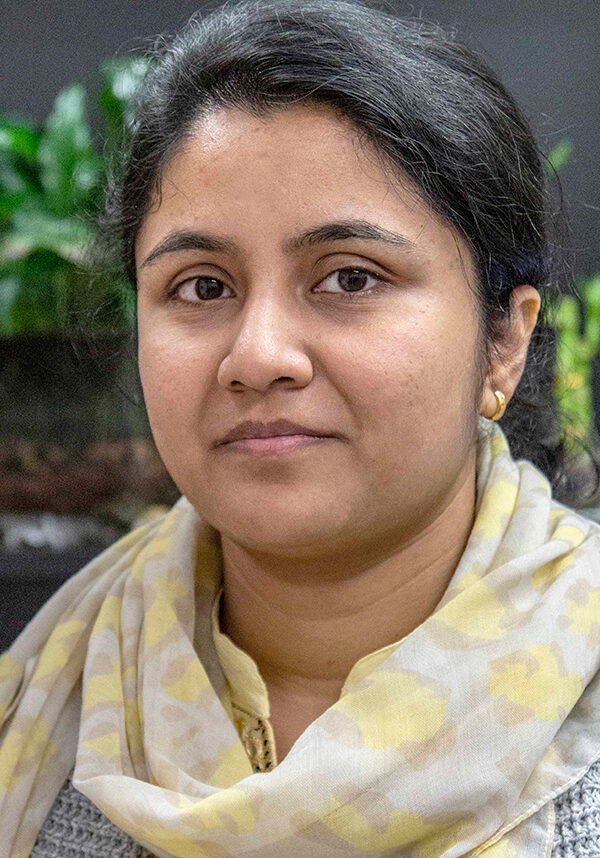
GENERATING POSITIVE CHANGE
Michelle Lin (MSE 2T2 + PEY)
“Over the past few years, I have been exposed to more opportunities to learn than I could have imagined coming in as a high school student,” says Lin.
As a commuter student, Lin made a great effort to balance her academics with extra-curriculars and part-time work. She participated in intramural ultimate frisbee starting in her first year and has held mentorship and outreach roles within the Faculty. But she credits MSE Club — where she eventually became chair — for helping her connect with her peers and participate in activities outside of academic settings.
During her PEY Co-op work term, she had the opportunity to hold two positions at Li-Cycle, a North American leader in the recovery and recycling of lithium-ion batteries, which was co-founded by a U of T Engineering alumnus.
“I was able to gain different perspectives on the business and all the work it takes to ensure that the different sectors are functioning cohesively towards the same goal,” she says. “It’s an evolving industry and it was amazing to see the rapid growth the company and industry experienced in just 16 months.”
Lin will be starting her MASc in Material Science & Engineering in the fall under the co-supervision of Professors Doug Perovic (MSE) and Jane Howe (MSE, ChemE). Her studies will allow her to gain more knowledge and expertise on materials characterization.
“I hope to be able to contribute positive change in the sustainability space and promote engineering and STEM to younger generations, especially girls and women,” she says. “I would love to be a source of inspiration for other women in engineering the same way my role models were for me.”
“There have been so many supportive mentors and friends that I have encountered in the journey of my undergraduate experience. I am so thankful to have been surrounded by such inspiring, caring and hard-working people. I want to make a special shout out to my family, TrackOne friends, MSE Club and peers, and my ultimate frisbee team. Most of all to Sherry Esfahani and Professor Perovic who have provided me with invaluable advice, mentorship and opportunities."
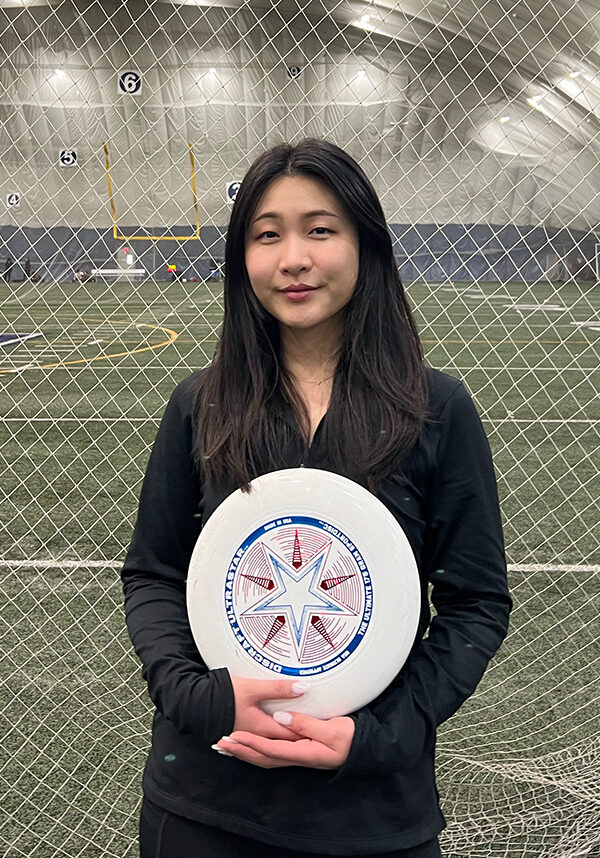
OPTIMIZING ARTIFICIAL INTELLIGENCE
Filip Marić (UTIAS PhD 2T3)
Marić came to U of T through the Joint Educational Placement program, splitting his time between Professor Jonathan Kelly’s lab at UTIAS and the Laboratory for Autonomous Systems and Mobile Robotics, led by Professor Ivan Petrović at the University of Zagreb in Croatia.
“It was a very rewarding experience,” says Marić. “I felt like I was helping bridge perspectives between the two groups by facilitating research and social visits. This has led to several collaborations and friendships that are active to this day.”
Marić’s thesis focused on using the latest optimization and deep learning algorithms to enable robotic manipulators, such as robotic arms, to better navigate their environment.
“If we are to look forward to a future where robots are not just used for industrial heavy machinery, but instead perform routine daily tasks, we need them to move in a safe and deliberate manner,” he says.
“I looked at well-known applications of computational geometry and geometric deep learning in other fields, such as protein folding or Internet of Things localization. I explored how they can be applied to robotic manipulators.”
Currently, Marić is working as a senior artificial intelligence research scientist in Samsung AI Montreal. He says his experience at U of T helped him gain a valuable, global perspective.
“I do feel like my world got a whole lot bigger during these past few years,” he says. “It changed my impression of what I am capable of and what my goals should be. The work I’ve done here and the people I’ve spent time with have given me the confidence to trust my own opinion — and also to change it when necessary!”
“Most of all. I would like to thank my advisor Professor Jonathan Kelly, as well as my co-advisor Professor Ivan Petrović, for presenting me with this opportunity and supporting me along the way. I would also like to thank everyone in STARS lab for all the great times we’ve had."
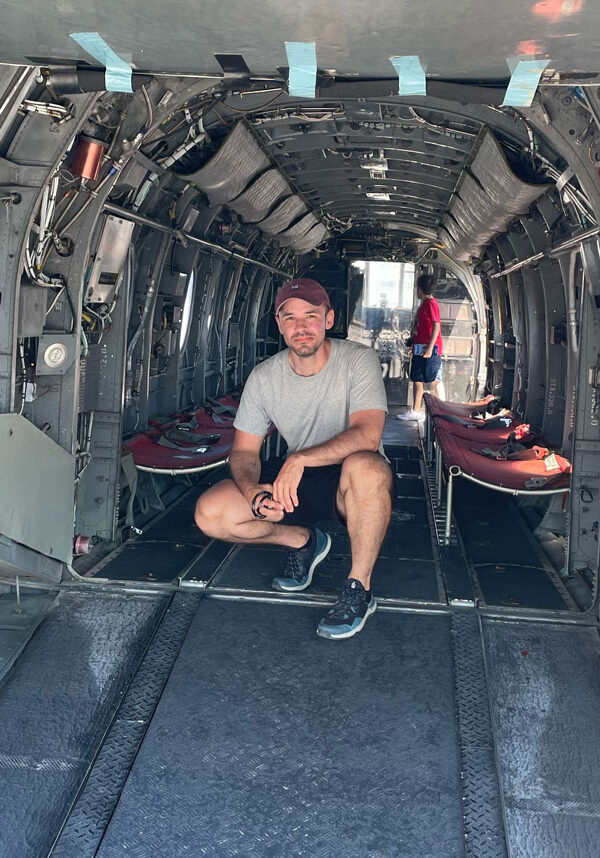
TRANSFORMING MINING TECHNOLOGIES
Parinaz Naseri (ECE PhD 2T3)
In her thesis, Naseri employed machine learning techniques to efficiently design electromagnetic metasurfaces.
“In the last few decades, these judiciously designed materials have revolutionized many applications that involve electromagnetic wave transformations,” she says. “This includes optical and wireless communication systems, ranging from enabling micro-sized cameras for human-body monitoring to profile reduction of satellite antennas used for remote sensing.”
During her time at U of T Engineering, she was proud to be the recipient of many scholarships, including the Outstanding New Leader Award by the Institute of Electrical and Electronics Engineers (IEEE) Toronto Section, the IEEE Antennas and Propagation Society Doctoral Research Grant, and the U of T ECE Donald R. Studney Electromagnetics Graduate Award.
She was also a part of the U of T International Students' Caucus Group and the U of T chapter of SPIE/OSA.
“I’m especially proud of establishing the first IEEE Antennas and Propagation Society student branch chapter at ECE in 2020,” Naseri says.
“As the chair of this chapter and with the help of other volunteers, we created a venue to support electromagnetics graduate students' mental health, technical and professional endeavours, especially during the isolation of the COVID-19 pandemic.”
Naseri is now working as a senior antenna and hardware engineer at Novamera Inc., a startup that develops surgical mining technologies to reduce the waste and cost of extraction of necessary metals.
“I am very proud to put my knowledge and training in electrical engineering, electromagnetics and machine learning toward a clean technology that impacts the future of our planet Earth,” she says.
“So many individuals and communities at U of T saw my abilities and provided me with opportunities and support so I could shine and grow. And for that, I'm forever grateful.”
“I'm extremely grateful to my PhD supervisor, Professor Sean V. Hum (ECE) for supporting me as I experienced different aspects of my PhD journey — from research directions that I liked to pursue to lab management, course instructor positions and being a student chapter chair. I'd also like to thank the electromagnetics group graduate students for their friendship. I wish them all the best in what's ahead."
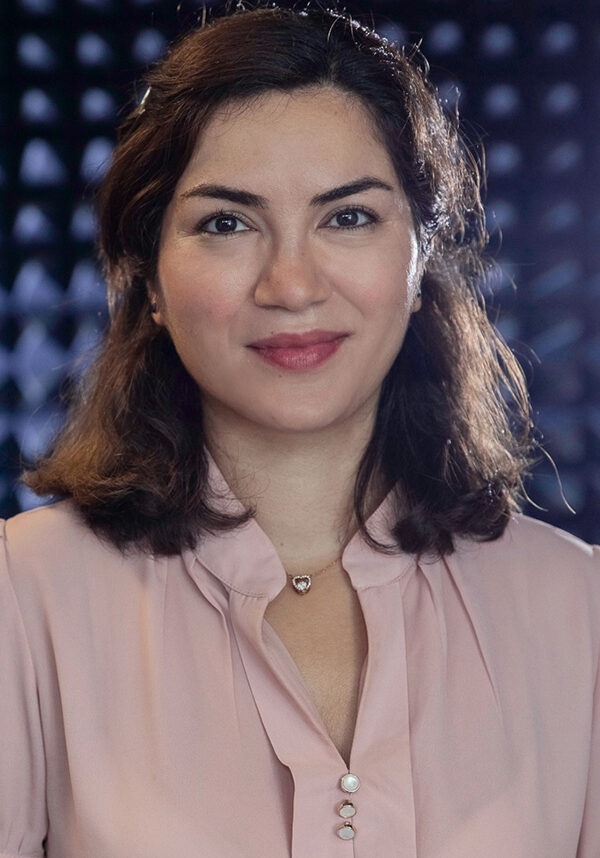
ELEVATING GLOBAL HEALTH
Anaïs Poirier (ElecE 2T2 + PEY)
Poirier feels a strong sense of fulfillment when she looks back on her time at U of T Engineering.
“Coming into first year, I wasn’t confident I would be able to make it through,” she says. “But my parents urged me to try it for one year and reassured me I could easily switch into a different program if it wasn’t the right fit.”
Yet what she found in engineering was an opportunity to affect real change — and that is how she plans to use her degree.
For her PEY Co-op, Poirier moved to Kentucky to work as a software engineering intern at Space Tango, a microgravity research company. She contributed to research from exploring cures for retinal degenerative diseases, to understanding why people develop diseases, to supporting human life in space.
During this time, a colleague suggested she apply for the Zenith Canada Pathway’s Fellowship, Canada’s first space fellowship, which aims to build a more inclusive Canadian space sector.
“I was selected as a fellow in the inaugural class, leading to a summer internship at GHGSat,” Poirier says. “I got to experience the positive global impact that working in the space industry can have.”
Poirier will be moving to San Francisco after graduation to work as a software engineer at Zipline, where she will test flight hardware. The company, which manufactures drones that serve as eco-friendly delivery vehicles, delivered over a million Covid vaccines to Ghana.
“Zipline is the world’s largest instant logistics company with the mission of creating a delivery service that impacts global health access, improves economic opportunity, and helps to protect our planet,” she says.
“I am excited to be working in a multi-disciplinary role that will use both the electrical and computer sides of my degree, and for a company whose mission I strongly believe in.”
“I would like to thank the Skule™ community, my Skule™ Spirit Head family, the strong and resilient women who have inspired me in this field, the community at Zenith, my roommates and friends. But most of all, I want to thank my parents for being my biggest support system and always believing in me. There have been many times where I’ve felt defeated and ready to give up, but the support I’ve received encouraged me to keep going. I could not be more grateful for where I am today. "
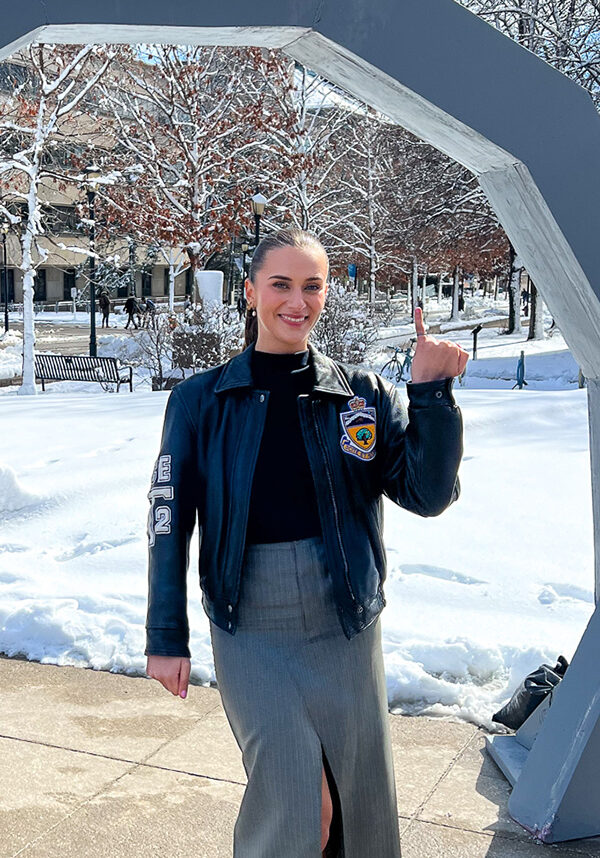
ENHANCING ENGINEERING CULTURE
Saskia van Beers (EngSci 2T2 + PEY)
Being a part of the U of T Engineering undergraduate community has been a transformative experience for van Beers. While her engineering classes taught her how to learn and think critically about the world around her, she was able to put those concepts into practice in her extracurricular activities.
"My worldview shifted greatly through all the initiatives I got to be a part of,” she says. “I definitely feel like I have undergone a lot of personal growth.”
From her role as co-president of Engineers Without Borders (EWB) to co-chairing both the Engineering Science Club and the Sexual Violence Education and Prevention group, van Beers has worked tirelessly with her fellow student leaders to improve the engineering culture within the University to help make all students feel welcome and seen.
Along with her classmate Savanna Blade (EngSci 2T2 + PEY), she ran a virtual consent culture town hall that brought together more than 80 of her fellow EngSci students to discuss all aspects of consent and the kinds of change they would like to see within their community.
“Since then, I have been hard at work with other student advocates to make sure that progress is made on those initiatives,” she says.
“It means a lot to be able to have contributed to the safety and positivity of the University.”
After graduation, van Beers plans to pursue the Collaborative Specialization in Engineering Education program at the master's level at U of T, with research focused on the intersectionality between equity advocacy work and the fundamentals of engineering education.
“I have been a long-standing believer that diversity within the engineering field allows for better engineering progress,” she says. “I would like to continue to make a positive impact on the changing culture of engineering.”
“I would like to thank the EWB community for providing me with such a safe and empowering place to grow and for trusting my leadership. I also would not be where I am today without the constant support of all my closest friends. Specifically, I want to thank Samantha Unger (EngSci 2T2 + PEY) for being an incredible person to lead teams with, and for teaching me so much about relational leadership and the importance of intention when trying to make an impact."
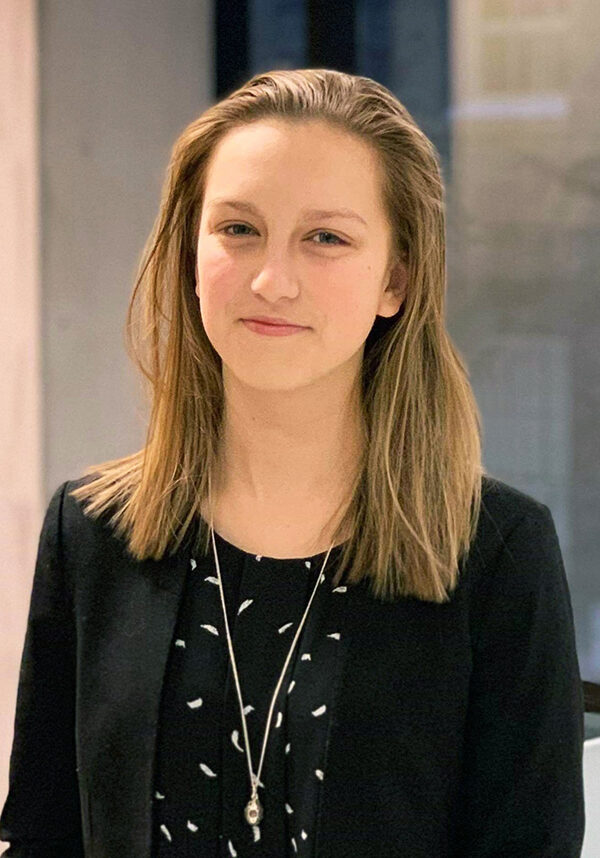
STRENGTHENING CLIMATE ACTION
Kim Watada (ChemE 2T2 + PEY)
Watada is graduating with nearly two years of experience in sustainability consulting, research and investing already under her belt.
“There are a lot of ways you can work in sustainability, and coming from an engineering background has given me the chance to explore many different paths,” she says. “I’ve built a cleantech start-up, worked in decarbonization strategy and studied renewable energy in Iceland. With each new perspective, I’ve been able to hone where my interests lie in sustainability and climate action.”
This spring, Watada and her team — the only one from Canada — won the Emerging Markets prize at the Climate Investment Challenge, a graduate-level climate finance design competition run by Imperial College London.
“We designed a solution to reduce greenhouse gas emissions from savanna wildfires in Africa,” she says. “Travelling to the competition finale in London gave me the chance to see our impact at the international level and the urgent need for implementable climate solutions.”
All this experience will come in handy after graduation, as Watada completes an internship with the United Nations’ Circular Economy and Resource Efficiency Unit in Vienna, Austria, before taking up a position in management consulting for the Boston Consulting Group. She’ll likely also draw on the leadership experience she gained as chair of the Canadian Society for Chemical Engineering (CSChE) Student Chapter.
“Working with my CSChE team to provide professional development events and resources for students was a hugely rewarding experience,” she says. “I am continuously inspired by the engineering community’s capacity for mentorship and creating new opportunities."
In the future, Watada hopes to leverage her knowledge to bridge the gap between environmental need, clean technology and tangible climate action.
“The greatest skill I have learned at U of T is how to be curious,” she says. “Being intrinsically open to learning new things is the key to solving problems in whatever field you choose.”
“I want to thank my CSChE executive team, friends and project teammates for all the memories we’ve made in our time at U of T. I also want to express gratitude to Professor Gisele Azimi (ChemE, MSE) for taking me on as a first-year summer research student and the ChemE department leadership team for supporting me as a student leader. Lastly, I want to thank my incredible family for their unwavering support through every step of this journey."
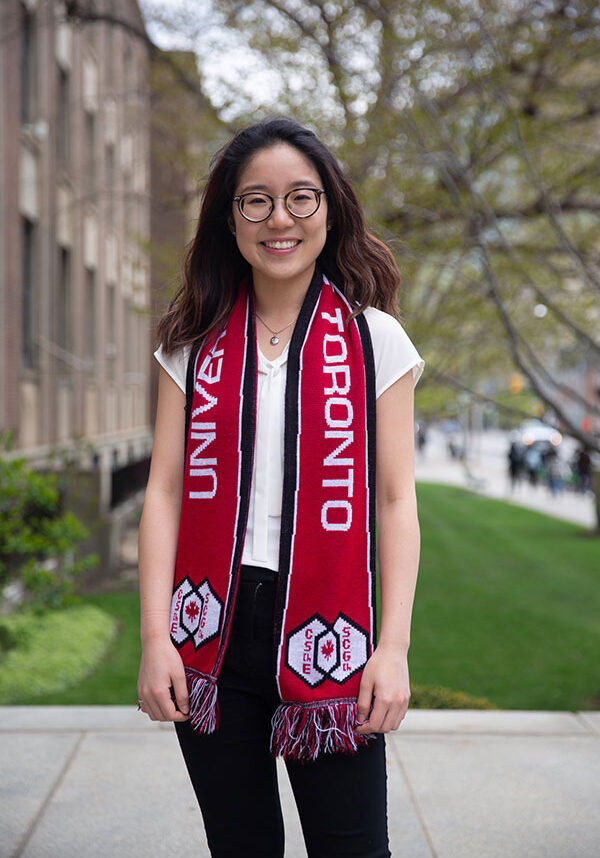
BUILDING CARING COMMUNITIES
Yazan Zamel (EngSci 2T2 + PEY)
When Zamel arrived at U of T from United Arab Emirates — flying more than 14,000 km away from home for the first time as an adult — he felt a sense of culture shock. But through perseverance and resilience, he found a way to carve his own path.
“Everyone at U of T is really supportive,” he says. “This place has provided a motivational spark that encourages me to create a difference in my community.”
In June 2020, he founded Ray of Hope to provide equitable education and career opportunities for refugees. The initiative received a 2022 Diana Award, which recognizes the international contributions of young people who create positive change. Zamel also launched Ambassadors of Tolerance, a program that aims to create bullying-free communities in schools by promoting principles of empathy, equity and compassion.
He also served as the president of Sustainable Engineers Association and was selected as Engineers Canada Leadership Scholar in 2021.
Zamel will begin his MASc at U of T’s Department of Civil & Mineral Engineering this fall, under the supervision of Professor Marianne Touchie.
“I got the chance to learn about Professor Touchie’s research through CIV575: Studies in Building Science, a graduate course that I took in third year,” he says.
“I hope I can do research to monitor and measure indoor air quality. I aspire to determine the impacts of air quality on the mental and physical health of residents, especially elderly and the marginalized communities.”
Zamel is especially looking forward to supporting CivMin undergraduate students as a teaching assistant (TA).
“I have been a TA in the Department of Mathematics since fall 2020,” he says. “I believe TAs have a great impact on students, and I hope I can be a positive influence to help improve the engineering experience despite how challenging it can be sometimes.”
In the long term, Zamel hopes to engage more youth in energy education and increase clean energy access to marginalized communities across Canada.
“I would like to thank all the professors, staff, and classmates who supported and motivated me to grow during my time at U of T. I would also like to appreciate the Sustainable Engineers Association community, as it holds a special place in my heart since I first joined in 2019. And I want to especially thank my mother and my sister for always believing in me and trusting my abilities. My mother has been and will always remain my role model in life. Watching my mom’s dedication inspires me to work hard and encourages me to leave a positive footprint behind."
